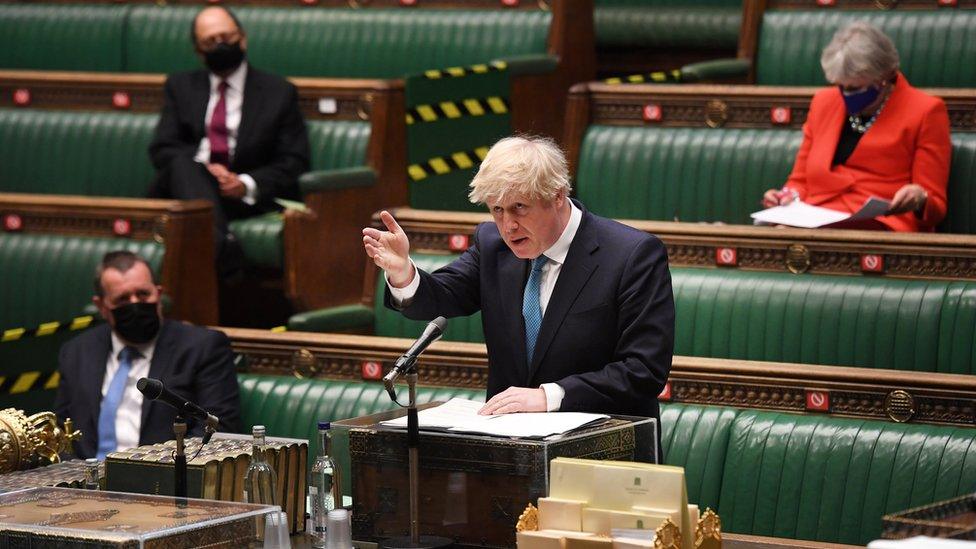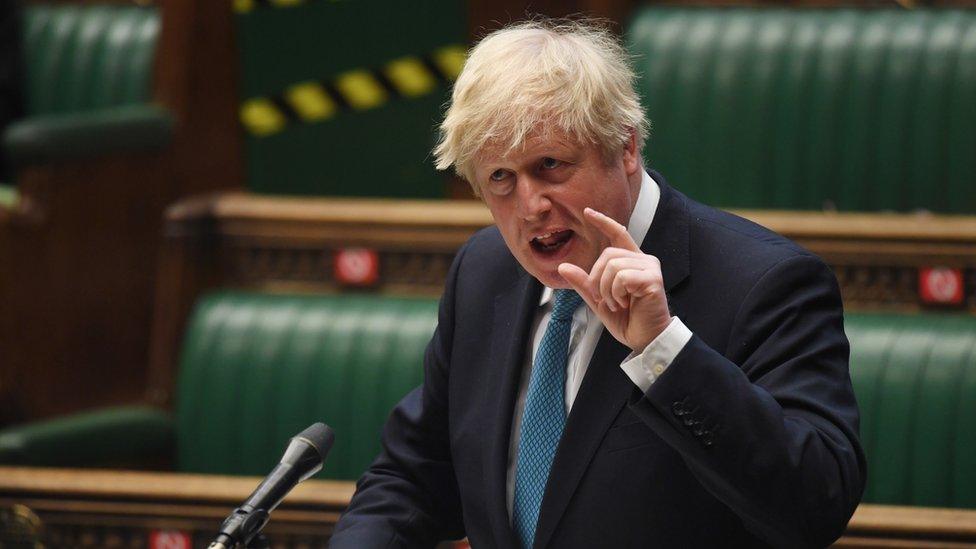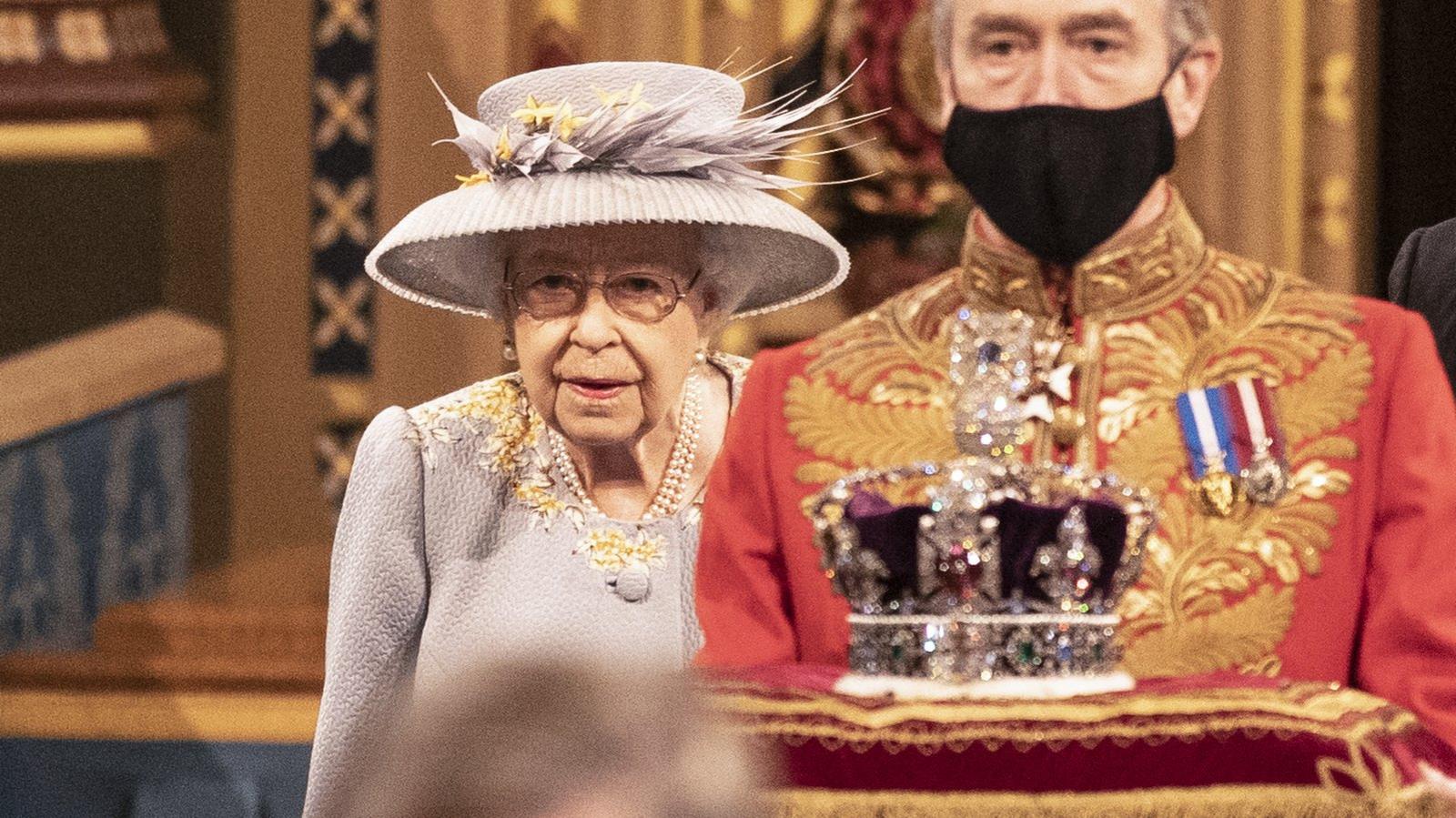Queen's Speech: PM's plans familiar but confirm Tories’ changed priorities
- Published
- comments

After a year when usual politics has been frozen, this Queen's Speech is a sign of it coming back to life.
Ministers hope they can start making progress beyond the pandemic, and the opposition parties are only now perhaps starting to confront the reality of a government with the brute force of a huge majority behind them.
Given how so much of the last 12 months has been spent coping with an emergency, you won't be surprised that the speech didn't yield many surprises - rather laws that ministers ran out of time to push through, laws to make manifesto promises real.
Many areas where action was promised are extremely familiar - planning reforms, action to make further education as much of a priority as university education, commitments to help the NHS and school kids catch up with the after-effects of lockdown.
But if you were looking for a huge radical programme, this was not it.
Despite raising lawyers' eyebrows over the intention to look at the scope of the courts and constitution, even the plans for voter ID to be compulsory - which have been branded by some as evidence of Boris Johnson's government's particular political brand - originate from a review of voter fraud which David Cameron requested back in 2015.
And, what's also familiar by now, is that there was no specific plan for solving the problems of the social care system, just a repetition of the commitments to sort it that have previously been made.
Just because the speech was not full of shocks, however, it is not to say that the speech was not significant.
As Westminster, alongside the country, starts to emerge from the bizarre stress of the pandemic, the speech contents confirm that Boris Johnson is leading a Conservative government that is - at least for now - intent on big spending, at ease with a big state, but in line with traditional values.
It's what some pundits identify as leaning leftwards on economics, but towards the right when it comes to culture.
There is of course a vigorous political argument about the realities of the government's actions.
'Conjuring trick'
The Tories may now be big spenders, but that doesn't remove the impact of the very real squeeze on some parts of the public purse in recent years.
Yet when David Cameron's coalition set out, they'd have been more likely to be described the other way round - leaning right on economics, and left when it came to values and how we live our lives.
So love them or loathe them, what the Conservative Party has done is something of a conjuring trick - changed its priorities, and changed the geography of its support while in office.
In more than a decade in charge, it's changed its leader twice, survived a near-death experience over Brexit and ended up at the tail end of a mammoth national emergency consolidating its grip on power.
But after every other of those 10 Queen's Speeches, Tory leaders perhaps had convenient justifications for not being able to keep their commitments - having to mollify the Lib Dems in coalition, having only a scrap of a majority, having the daily drama of Brexit to contend with, or then the pandemic.
Now the Covid risk is fading, the prime minister will be all too aware that he has no such excuse.
The opportunity is vast, the ambition of the rhetoric is huge too, but to use a phrase the prime minister himself has been known to employ on the odd occasion, that's not the same as "getting it done".
Related topics
- Published11 May 2021

- Published11 May 2021

